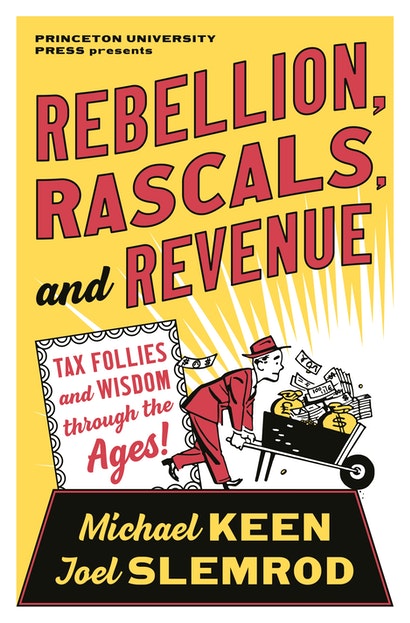
This in-person talk is open to the public. Vaccination is required for in-person attendance. Princeton University requires everyone to wear face coverings while indoors. Pre-registration is required and please plan to arrive 10 minutes early to check-in with the QR code. Enter through the main doors on Washington Rd.
Governments have always struggled to tax in ways that are effective and tolerably fair. Sometimes they fail grotesquely, as when, in 1898, the British ignited a rebellion in Sierra Leone by imposing a tax on huts―and, in repressing it, ended up burning the very huts they intended to tax. Sometimes they succeed astonishingly, as when, in eighteenth-century Britain, a cut in the tax on tea massively increased revenue. In this entertaining book, two leading authorities on taxation, Michael Keen and Joel Slemrod, provide a fascinating and informative tour through these and many other episodes in tax history, both preposterous and dramatic―from the plundering described by Herodotus and an Incan tax payable in lice to the (misremembered) Boston Tea Party and the scandals of the Panama Papers. Along the way, readers meet a colorful cast of tax rascals, and even a few tax heroes.
Michael Keen is Deputy Director of the Fiscal Affairs Department of the International Monetary Fund, where he was previously head of the Tax Policy and Tax Coordination divisions. Before joining the Fund, he was Professor of Economics at the University of Essex and visiting Professor at Kyoto University. He has led technical assistance missions to nearly thirty countries on a wide range of issues in tax policy, and consulted for the World Bank, European Commission, and the private sector. He has served on the Board of the National Tax Association in the U.S., and on the editorial boards of American Economic Journal: Economic Policy, International Tax and Public Finance (of which he was joint founder), Journal of Public Economics, the Review of Economic Studies and many other journals. He is co-author of books on The Modern VAT, the Taxation of Petroleum and Minerals, and Changing Customs.
Joel Slemrod is the Paul W. McCracken Collegiate Professor of Business Economics and Public Policy at the Ross School of Business, and Professor in the Department of Economics, at the University of Michigan. He also serves as Director of the Office of Tax Policy Research, an interdisciplinary research center housed at the Business School. Professor Slemrod received the A.B. degree from Princeton University in 1973 and the Ph.D. in economics from Harvard University in 1980. Before coming to Michigan he was assistant professor, from 1979 to 1985 and associate professor from 1985 to 1987, at the University of Minnesota. In 1983-84 he was a National Fellow at the Hoover Institution and in 1984-85 he was the senior economist for tax policy at the President's Council of Economic Advisers.
From 1992 to 1998 Professor Slemrod was editor of the National Tax Journal and from 2006 to 2010 was co-editor of the Journal of Public Economics. In 2005-6, he was president of the National Tax Association and, from 2015 to 2018, was president of the International Institute of Public Finance. In 2012 he received from the National Tax Association its most prestigious award, the Daniel M. Holland Medal, for distinguished lifetime contributions to the study and practice of public finance. He is co-author with Jon Bakija of Taxing Ourselves: A Citizen’s Guide to the Debate over Taxes, now in its fifth edition; with Len Burman of Taxes in America: What Everyone Needs to Know, now in its second edition; and with Christian Gillitzer of Tax Systems, published in 2014. His book with Michael Keen, Rebellion, Rascals, and Revenue: Tax Follies and Wisdom through the Ages, will be published by Princeton University Press in 2021.
This event is co-sponsored with the Julis-Rabinowitz Center for Public Policy & Finance and the Griswold Center for Economic Policy Studies.

